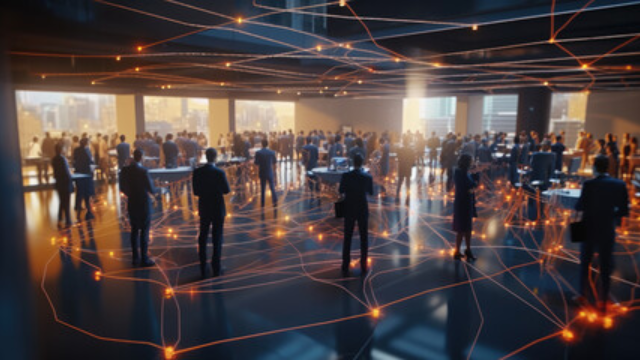You’ve likely heard the buzz about AI, but do you know how it’s reshaping the world of business and society at large? From streamlining operations to altering consumer behavior, AI’s presence is increasingly felt. Here, you’ll uncover the scope of AI’s impact and glimpse into the future of this transformative technology. So, strap in and get ready to explore the profound ways AI is changing our world.
Understanding Artificial Intelligence
To truly grasp how AI influences both business and society, you’ve got to first understand what Artificial Intelligence really is. Essentially, AI involves machines mimicking human intelligence processes. But it’s not just about robots doing human tasks. It’s more profound and complex.
Machine Learning, a subset of AI, is particularly important. It’s where machines learn from experience, refining their algorithms as they’re fed more data. It’s what enables Netflix to recommend shows you’ll love, or your phone to recognize your face.
However, AI isn’t just about convenience or efficiency. It also raises profound questions about AI Ethics. How do we ensure AI systems make fair decisions, free from human bias? How do we protect privacy when AI requires vast amounts of data to learn? These aren’t just technical questions; they’re societal ones. AI Ethics is about ensuring the benefits of AI are realized while minimizing potential harm.
AI’s Role in Modern Business
In today’s digital era, you’ll find that AI plays a pivotal role in various aspects of modern business, from enhancing customer service to streamlining operations. It’s an integral part in making businesses more efficient and customer-centric.
AI’s role extends to:
- Predictive Analytics: AI accurately forecasts market trends, helping businesses stay ahead of the competition.
- Customer Service: AI-powered chatbots deliver instant, personalized customer service, enhancing customer experience.
- Operational Efficiency: AI optimizes business processes, reducing costs and increasing productivity.
- AI Ethics: AI technology must be developed and used responsibly, ensuring transparency, fairness, and privacy.
- Startup Innovations: Many startups are leveraging AI to create innovative solutions, disrupting traditional business models.
AI is not only transforming businesses but also raising critical ethical questions. AI Ethics is crucial to ensure responsible use of technology, protecting users against bias and privacy violation. On the other hand, startup innovations are using AI to build unique solutions, reshaping the business landscape. In essence, AI is a game-changer in modern business, but its ethical implications must be carefully addressed.
Impact on Business Operations
While you’re harnessing AI to stay ahead in the competitive business world, it’s also revolutionizing your daily operations, making them more efficient, flexible, and cost-effective. AI’s role in enhancing operational efficiency cannot be overstated. Whether you’re in retail, manufacturing, or any other industry, AI provides tools to streamline processes, reduce errors, and increase productivity.
Through predictive analysis, AI can forecast demand, optimize inventory, and even predict potential machinery breakdowns, saving you both time and money. Moreover, AI’s machine learning capabilities allow it to adapt and improve over time, offering continuous efficiency gains.
AI is not just about operational efficiency, though. It’s also a powerful catalyst for business innovation. AI opens up new opportunities, enabling you to offer personalized customer experiences, develop new products, or penetrate untapped markets. With AI, you’re not just keeping up with the competition; you’re staying ahead.
AI and Consumer Behavior
Shifting gears to consumer behavior, you’ll find that AI’s impact is just as profound and transformative. AI’s predictive personalization capabilities have altered shopping patterns, steering consumers towards a more personalized shopping experience.
Here are some ways AI reshapes consumer behavior:
- By analyzing historical data, AI predicts consumer preferences, enabling businesses to deliver personalized content. This predictive personalization results in higher customer engagement and satisfaction.
- AI-powered chatbots provide instant, personalized customer service, resulting in improved customer experience.
- AI’s ability to analyze vast amounts of data helps businesses understand shopping patterns, enabling them to stock products that meet consumer demands in real-time.
- AI tools provide personalized product recommendations based on consumer’s online behavior, enhancing the shopping experience.
- AI’s data analysis capabilities allow businesses to anticipate future trends, giving them a competitive edge.
In essence, AI’s influence on consumer behavior is transformative, leading to a paradigm shift in how businesses interact with consumers. By harnessing the power of AI, businesses can provide a more personalized, seamless shopping experience, ultimately driving consumer loyalty and boosting sales. In this era of digital transformation, understanding the implications of AI on consumer behavior is crucial for business success.
Societal Changes Driven by AI
Beyond influencing consumer behavior, AI’s transformative effects ripple out, causing significant societal changes you need to be aware of. As AI permeates our daily lives, it brings both opportunities and challenges. You’re seeing innovations that couldn’t have been imagined a decade ago, but you’re also grappling with issues of AI ethics and job displacement.
AI ethics is a pressing concern that needs your attention. With AI systems making decisions that directly impact people’s lives, like credit scoring or job applications, there’s a need for ensuring fairness, accountability and transparency. You must ask, who’s responsible if an AI system causes harm? How can you ensure AI doesn’t reinforce existing biases?
Furthermore, AI is revolutionizing the job market. While it’s creating new roles, it’s also causing job displacement. Many routine tasks are being automated, and you might wonder: Will AI replace your job? It’s crucial to prepare for this change. Upskilling and embracing lifelong learning can help you stay relevant in the AI-driven future.
The Future Outlook of AI
Looking ahead, you’ll find that the future of AI holds immense potential, but it also presents unique challenges that we must navigate carefully. As we delve deeper into this era of technological advancement, you’ll see how AI Ethics and AI Legislation play pivotal roles in shaping the course.
To paint a clearer picture, consider the following:
- AI Legislation: Governments worldwide are grappling with the task of crafting legislation that effectively regulates AI, protecting both businesses and consumers. This is an ongoing, complex task.
- AI Ethics: Ethical considerations, such as fairness, transparency, and privacy, are at the forefront of AI discussions. Ensuring AI systems behave ethically is a pressing necessity.
- Job Market: AI will undoubtedly influence the job market, potentially making some roles redundant while creating new opportunities.
- Societal Impact: The proliferation of AI will reshape society in ways we can’t fully predict. We must be prepared to adapt.
- Leading Edge Technology: AI’s evolution will lead to the development of more advanced technologies, further revolutionizing industries.
The future of AI is a fascinating, albeit challenging, landscape. Through careful navigation, we can harness its potential while mitigating its risks.



